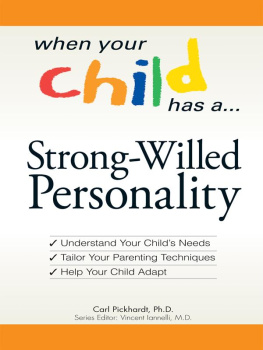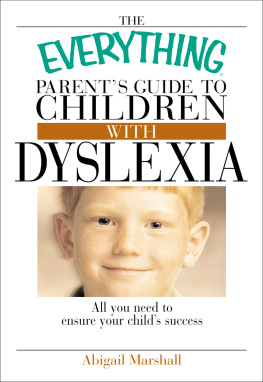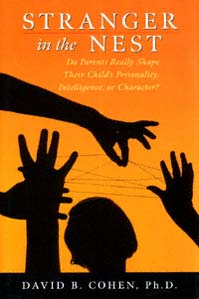We offer to read an annotation, description, summary or preface (depends on what the author of the book "Stranger in the nest: do parents really shape their childs personality, intelligence, or character?" wrote himself). If you haven't found the necessary information about the book — write in the comments, we will try to find it.
For decades, millions of parents have been told that they are primarily responsible for things gone wrong with their children. Mothers and fathers have internalized this message, producing an unrealistic and damaging sense of guilt, and even betrayal. Parents do affect their children, but how much? Our children are not born as blank slates. They come to us encrypted with their own predilections, biases, strengths, and weaknesses, many of which are as beyond the control of parents as determining their childs gender or eye color. Here, for the first time, is a scientifically grounded examination of the controversial idea that naturein the form of genetic blueprintsmay have far more influence on how children develop than a particular style of parenting. Parents reeling from the idea that they dont have much impact on how their children think, feel, and behave, will find both surprise and comfort in psychologist David Cohens riveting account of the importance, and limits, of inborn traits.Dr. Cohen weaves together a rich tapestry of research in behavioral genetics to illustrate the degree to which biology, rather than parenting, can impact a childs personality, values, and aptitudes. Identical twins separated at birth are reunited in mid-life to discover that they both drive the same car, have held the same jobs, named their sons James, and married women with the same first name not oncebut twice. Yet siblings reared together in the same family environment often grow up to have very different interests, abilities, and beliefs. The nurture correlation between good parenting and child development fails to explain how, of two children raised in a loving and supportive home, one grows up to be a pillar of the community, while the other becomes a drug abuser. Parents have been blamed for problems ranging from antisocial behavior to autism to schizophreniadisorders which Dr. Cohen reveals have a strong genetic component. On the flip side, parents who werent able to give their offspring a consistently safe and supportive home environment have happily taken the credit when their children grow up to be well-adjusted, hard-working members of society.The truth of the matter is that, if sufficiently strong, inborn potentials can trump parental influence, no matter how positive or negative. Some traits manifest themselves in such unexpected and uncontrollable ways that, for better or for worse, ones child may indeed seem like a perfect stranger.Stranger in the Nest puts a human face on the agesold naturenurture debate, providing a gripping, scientifically grounded examination of parental influence on childrens development. Any parent who has ever questioned what he or she did wrongor rightmust read this book.PRAISE FOR STRANGER IN THE NEST......rich with fascinating facts and excellent examples of how children develop more in obedience to their genetic steersman that to the influence of their parents. Scholarly, yet beautifully written and a joy to read. David T. Lykken, University of Minnesota and author of Happiness For decades, ... a book that turns its own pages. I could not put it down. Elegantly written, erudite, witty, informative, and bursting with new ideas, it challenges many of the core assumptions of modern psychology. Thomas J. Bouchard, Jr., University of Minnesota.A delightfully written book filled with new insights about relations between parents and their children. [Dr.] Cohen has a unique ability to blend new scientific findings with a writing style that deeply engages the reader. No one will come away thinking about families in the same way. David M. Buss, University of Texas at Austin, and author of The Evolution of Desire.A scientific revolution has begun in our understanding of what makes us what we are. Genes matter more than anyone had thought... Sensitive, intelligent, and provocative, this book will challenge you to reexamine the way you think about yourself and your fellow human beings. Steven Pinker, Massachusetts Institute of Technology, and author of The Language Instinct and How the Mind Works.Required reading for all students of the art and science of parenting. Allan Hobson, Harvard Medical School, and author of The Chemistry of Conscious States: How the Brain Changes its Mind.








